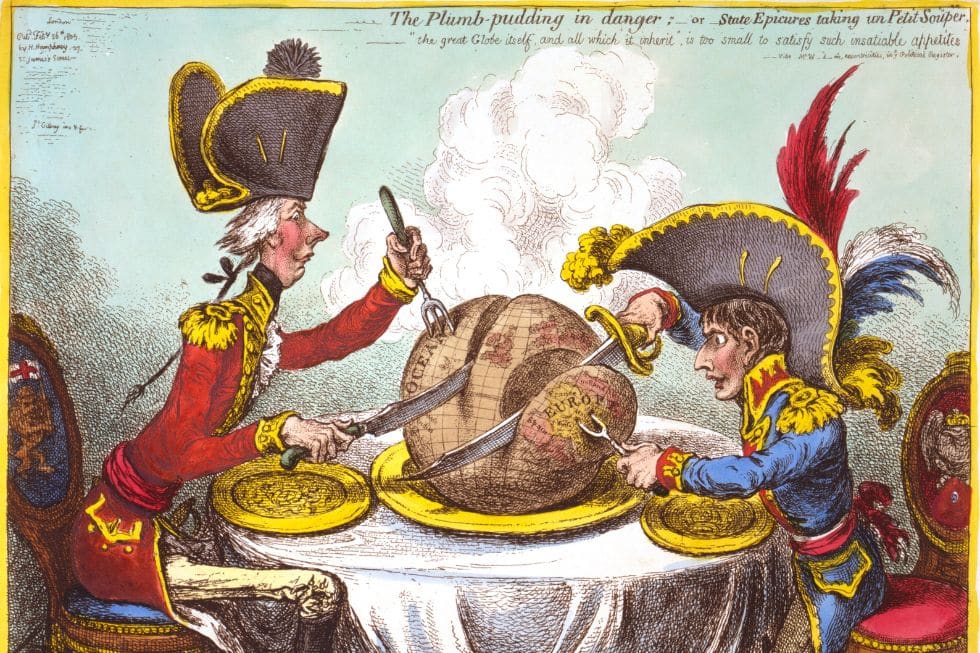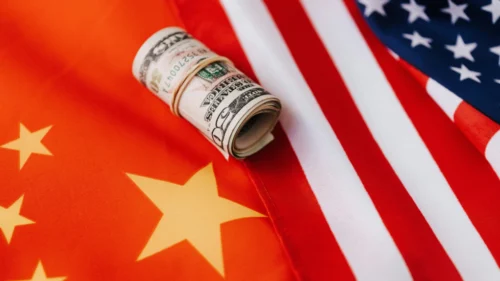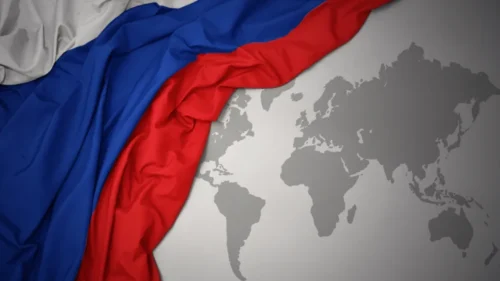The current geopolitical changes are less alarming than they tend to be presented. This mirage may partly result from an unusually long period of single-superpower dominance along with the human tendency to consider only the events and situations remembered from the lives of current generations.
If we look back a little further, we can see that the world has always been a fluid soup shaped by fluctuating collusions and rivalries between multiple empires. Our world can be seen as a gigantic, mobile, fluid, flexible mollusk, similar to the way physicist Albert Einstein viewed spacetime — a creature that fluctuates, undulates, stretches, bends and contorts. Most of the world is in flux and human gatherings exist in unstoppable unrest and change. After all, we human beings are a part of nature.
Lessons from the last two centuries
We don’t need to go very far back to the periods when modern states did not exist and humankind was mainly organized in tribes, cities and belligerent empires. Just focusing on the last two hundred years, we can see how permanent fluctuations in imperial entanglements have been.
First, Emperor Napoleon Bonaparte’s France conquered Europe from near Cádiz to Moscow. But Arthur Wellesley Duke of Wellington’s Britain, Prussian Prime Minister Karl August von Hardenberg and Russian Emperor Alexander I defeated him. Their victory led to the relatively peaceful parenthesis of the Concert of Europe, formed by Austrian Chancellor Klemens von Metternich, British Prime Minister Robert Stewart, Viscount Castlereagh and Emperor Alexander I, with the artful support of French diplomat Charles Maurice de Talleyrand. Yet the rise of German Chancellor Otto von Bismarck produced the crushing defeat of French Emperor Napoleon III. In Asia, Japanese Emperor Mutsuhito led a modernized Japan to fight and defeat Russian Emperor Nicholas II.
Later, the German, Austro-Hungarian and Ottoman empires faced an alliance of French Prime Minister Georges Clemenceau, British Prime Minister David Lloyd George, Russian Emperor Alexander II and US President Woodrow Wilson in World War I. However, the Russian Revolution led by Communist Party leader Vladimir Lenin split the winning bloc and generated high polarization.
Again, Germany — this time led by Chancellor Adolf Hitler — allied with Japanese Emperor Hirohito to provoke a new war. This led to an alliance of US President Franklin Roosevelt, Soviet General Secretary Joseph Stalin and British Prime Minister Winston Churchill during World War II.
America is the latest empire to be challenged
After World War II, capitalist and democratic America and Europe on one side and Communist Russia and China on the other became main rivals during the so-called Cold War. But Chinese Communist Party Chairman Mao Zedong split with Soviet leaders Nikita Khrushchev and Leonid Brezhnev and entered into a temporary collusion with US President Richard Nixon and Secretary of State Henry Kissinger. Later, Soviet President Mikhail Gorbachev presided over the collapse of the Soviet Union, leaving the US — under Presidents Ronald Reagan and George H. W. Bush — as the single great power.
Now, US President Donald Trump and Chinese Communist Party Chairman Xi Jinping are major rivals. Each seeks to pull headless Europe and Russian President Vladimir Putin in opposing directions. At the same time, America feels the preposterous temptation to split from Europe and resume collaboration with Russia to counterbalance the rise of China.
None of these configurations was predetermined or anticipated. They have lasted for discontinuous, relatively brief periods. Most of the time, world politics has not followed any formal model. Instead, it has displayed an unstable panorama of interrelations between fluctuating empires. While some empires have risen or simply kept fighting, others have disappeared — like the Ottoman Empire — or yielded to new powers. France and Germany reshaped Europe and Britain opened the door to the emergence of India.
We are now in a new period of instability. Several empires fluctuate between external expansion and influence, active rivalry and entropic disorder. These forces make their mutual entanglements highly unpredictable in the mid- and long-term.
This representation has non-deterministic implications. When a dominant empire falls, its main challenger may or may not replace it. If both exhaust their energy in conflict, then another candidate can rise. In the academic language of international relations, the fall of a hegemon — such as the US — does not necessarily lead to a multipolar balance. A dark age of stagnation and inwardness may follow. But rebounds happen. Pressure may turn into a bounce. Sequels are never as good and a rebound typically does not restore the empire to its former power. A declining empire may borrow extra human or technological energy, which it must repay with appropriate promptness. New expansions may then appear. And so on.
Courage: We are again in “normal” times.
[Liam Roman edited this piece.]
The views expressed in this article are the author’s own and do not necessarily reflect Fair Observer’s editorial policy.
Support Fair Observer
We rely on your support for our independence, diversity and quality.
For more than 10 years, Fair Observer has been free, fair and independent. No billionaire owns us, no advertisers control us. We are a reader-supported nonprofit. Unlike many other publications, we keep our content free for readers regardless of where they live or whether they can afford to pay. We have no paywalls and no ads.
In the post-truth era of fake news, echo chambers and filter bubbles, we publish a plurality of perspectives from around the world. Anyone can publish with us, but everyone goes through a rigorous editorial process. So, you get fact-checked, well-reasoned content instead of noise.
We publish 3,000+ voices from 90+ countries. We also conduct education and training programs
on subjects ranging from digital media and journalism to writing and critical thinking. This
doesn’t come cheap. Servers, editors, trainers and web developers cost
money.
Please consider supporting us on a regular basis as a recurring donor or a
sustaining member.
Will you support FO’s journalism?
We rely on your support for our independence, diversity and quality.











Comment